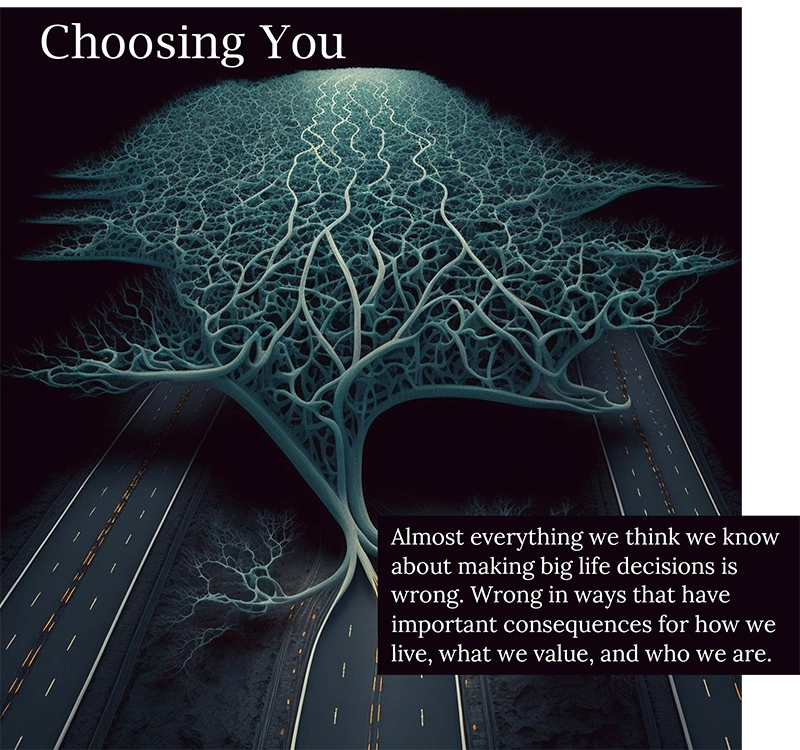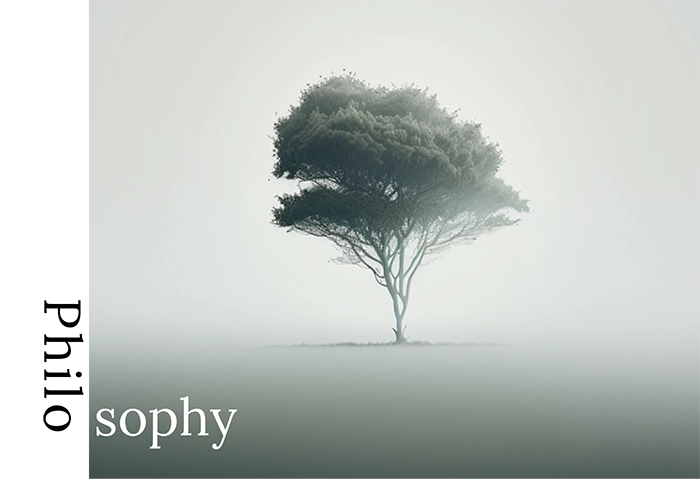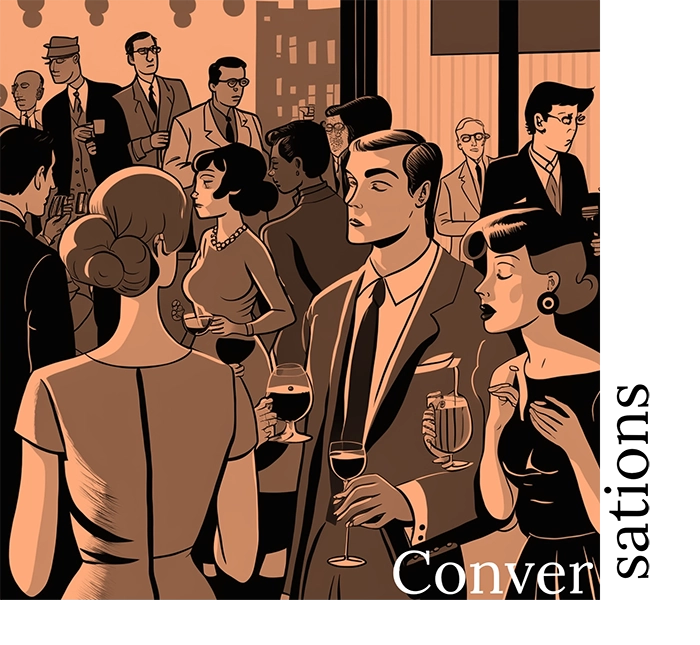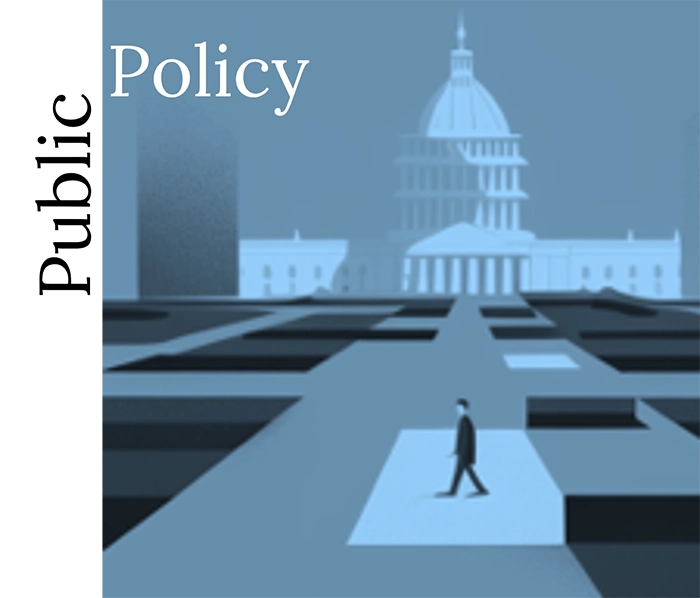
L.A. Paul’s 2015 book, Transformative Experience, laid out the case that we can’t make big life decisions the way we make most other decisions. For experiences that change who we are, the traditional model of rationality doesn’t apply – with enormous consequences for our understanding of both rationality and ethics.
New Choices

They share nothing but an unusual last name, yet reading novels by E. L. and Cory Doctorow is a case-study in the difference between art and consumer packaged ideology.

Story of a Life: Biography and the Novel
Autobiography written with all the care and beauty of a novel, The Story of a Life is a luminous account of what makes a writer a writer.

Our society may have many virtues when it comes to building a good life, but we often struggle to take advantage of them. Not least because we lack any way to think or even talk about a good life in a meaningful fashion.

Transformative Experience is THE problem for our society because of the unique challenges our culture presents. We have all the tools for building a good life and none of the required knowledge.

Words Fail Us – Language and Rationality
Language is the most powerful tool we have for thinking. But our brains are massive connection systems, the ultimate black-box. Words cannot and will never be able to capture how we think, putting severe limits on our ability to understand others and ourselves.

Cognitive Science & the Work to be Rational
The way our brains work creates real challenges for decision-makers especially when it comes to decisions about transformative experience. Learning to address these challenges is the work to be rational.

The X-Prize, Apollo and the Art of Making Better People
Julian Guthrie’s “How to Build a Spaceship” tells the compelling story of the X-Prize. It’s filled with fascinating people nearly all of whom traced their passion and life pursuit back to the moon landing and the Apollo program. It’s a striking example of a fundamentally different way to think about what Public Policy is for.

Prediction is fundamental to the way our mind’s work – and it’s the only way a connection system can be self-training and of use for a practical decision-maker.

Longtermism & Rational Mistakes
In What We Owe the Future, William MacAskill makes the case for longtermism – taking moral account of future generations. But longtermism, like most forms of abstract rational morality, falls afoul of the realities of transformative choice.

Most psychological studies suggest that “character” as we think of it, doesn’t really exist. Yet it seems impossible to do without and inevitable based on cognitive science.



Oppenheimer and the False Non-Equivalency of Hitler and Stalin
We’ve always treated Stalin as somehow fundamentally different than Hitler. But in a “Murderers Row” of…well…murderers, it’s unclear why.

Drink “Before the Coffee Gets Cold”
Novelists, unlike philosophers, have long understood the nature of transformative experience. In Before the Coffee Gets Cold the only thing that changes is people.

Death may be worth worrying about, but is it worth thinking about? Julian Barnes brings plenty of experience of both to this work in public philosophy.

Reading Barry Lopez’s Horizon is rather like meeting Dos Equis’ “Most Interesting Man in the World” at your neighborhood bar. It’s a reminder that the world can be extraordinarily interesting when seen through the eyes of an interesting man. Yet, like the modern taste in beer, it can occasionally be a little sour too.

The 4-Year Queue: College in America
The better your reasons for going to college, the less likely you are to get what you’re looking for. TW2BR looks at college from the perspective of transformative decision-making.

Capital & Ideology & Ideology & Ideology
Tedious, long and intellectually dishonest, yet there are things worth reading in Piketty’s Capital & Ideology if you read it “Manga-style”

Ars Technica and Public Health Experts Win a LAZY
If the recent Ars’ panel on learnings from the pandemic is any indication, our public health experts are doubling-down on every mistake they made.

Anthony Fauci and the Public Life
Few philosophers have ever been sanguine about the possibilities of a public life. The Buddha may suggest that you “live like a lotus”, but we are learning machines who find it very difficult to live in the mire.

Just for Fun

Mr. Shuffle Suggests
That rare syzygy of chance and meaning when you shuffle your playlist and get something unexpectedly delightful.
- Reason to Believe & Something to Believe InCrisis of confidence? Resilience of hope? Springsteen and Clannad (via Mr. Shuffle) offer two hauntingly laments on the seemingly illusory nature of hope, the endless disappointments of life, and the essential challenge we face in finding something to believe in. This might as well be the soundtrack to the latest TW2BR essay on materialism and… Read more: Reason to Believe & Something to Believe In
- Cities in Dust and Go, Go, GodzillaSeems like Mr. Shuffle might have played these two songs in the wrong order. I would have put them the other way around. But then… History Shows Again and Again How Nature Points Out the Folly of Men.
- Saturday Sun & Chelsea MorningAfter a long, wet SF winter, it’s easy to appreciate how New Yorkers and the English feel about a warm sunny day. And what better company for the sun could Mr. Shuffle devise than a rare almost cheerful Nick Drake tune and Joni Mitchell’s buttery ode to the sun through yellow curtains…
- The Man Who Can’t Be Moved & I Will Follow You Into the DarkMr. Shuffle channels his grown-up Romeo with two impossibly romantic songs. It isn’t stalking if you’re just hanging out on a corner with The Script. While for Death Cab for Cutie, even the big D isn’t an excuse to part.
- Be My Number Two & Be My MistakeMr. Shuffle gives a sad, cynical shrug with these two bitter as kale “love” songs (from Joe Jackson and the 1975). If you had to choose, you’d probably rather be someone’s second choice than their drunken folly. Or maybe not.

StreamGems
Recommendations from any of the current streaming services we happened to have a subscription to at the moment…
- Purpose Amid the HorrorQuiet Place: Day One delivers a powerful message on the nature and magnetism of having a purpose. We are drawn to anyone who knows what they want, to purpose. And the worse things are, the more magnetic having a purpose is. Each Quiet Place movie has explored the role and nature of purpose in a world where… Read more: Purpose Amid the Horror
- Love’s Labour’s LostPerhaps the most flawed of Branagh’s Shakespeare films, Love’s Labour’s Lost is a fitting adaptation of one of Shakespeare’s weaker plays. It’s a silly story and Branagh leans hard into the silliness while transplanting the action into a pre-war (WW2) setting and transforming the play into a Porter and Gershwin jukebox musical. Too much of… Read more: Love’s Labour’s Lost
- Ryuichi Sakamoto | OpusI won’t pretend this is a movie for everyone. You need to like modern classical music or I suspect you will find this film interminable and probably sleep inducing. But if you check that box, Opus is an intimate private piano recital in your living room. It’s a 1hr 40minute concert with nothing but Sakamoto… Read more: Ryuichi Sakamoto | Opus
- Remembering Gene WilderThere is a wonderful story in Remembering Gene Wilder about making The Producers. Brooks worked on it for years before getting it off the ground, and he’d wanted the not-at-all-famous Gene Wilder to be Leo Bloom after seeing him on stage and doing a reading of the first scenes. But when Zero Mostel was cast… Read more: Remembering Gene Wilder
- Godzilla Minus OneI’m not a Godzilla fan though I’ll admit to a soft-spot for Blue Oyster Cult’s Godzilla. So I came to GMO with mixed expectations. The reviews were sterling. The franchise not so much. And when all was said and done and Tokyo was saved, I leaned toward the reviews. The best parts of Godzilla Minus… Read more: Godzilla Minus One

Leave a Reply